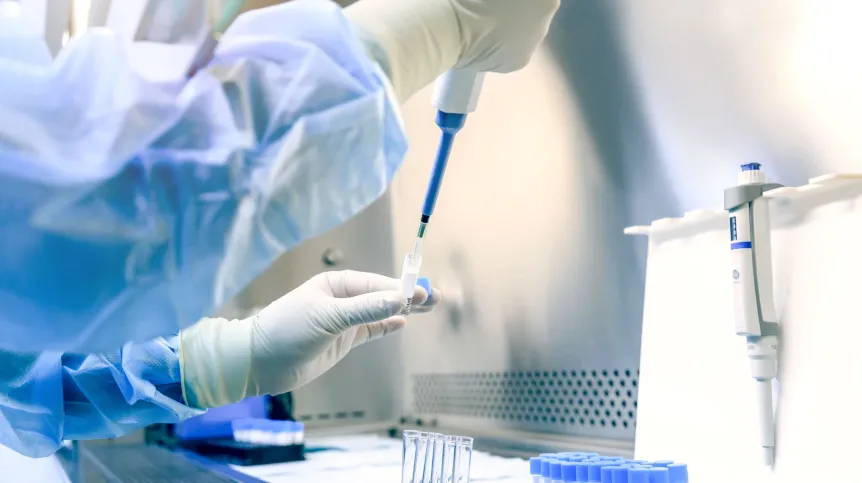
Researchers have developed a groundbreaking method of using polymer nanoparticles for targeted cancer therapy.
The new approach from the West Pomeranian University of Technology and the Pomeranian Medical University in Szczecin, led by Dr. Agnieszka Piegat, has shown promise in preclinical trials, and is aimed at improving the effectiveness of treatments for cancers such as ovarian cancer.
Initiated in 2016 under the "Lider" programme with over PLN 1 million in funding from the Polish National Centre for Research and Development, the method aims to significantly reduce side effects typically associated with conventional chemotherapy, where drugs affect not only cancerous but also healthy cells.
The journey toward the innovative cancer therapy began with research on gastric ulcers. In the early stages, Piegat and her team developed polymer nanoparticles that encapsulated drugs such as antibiotics and proton pump inhibitors, which are essential in treating stomach ulcers caused by Helicobacter pylori. However, the promising results led the researchers to expand their work, ultimately adapting the nanoparticle technology for use in oncology, specifically targeting ovarian cancer.
Ovarian cancer presents a unique challenge because the cancer cells tend to spread throughout the abdominal cavity, where they secrete mucins—proteins that create a mucous barrier around the malignant cells.
‘Healthy cells in the peritoneal cavity do not secrete mucins. Knowing this, we designed a coating for drugs that would selectively bind to these mucins, ensuring that the drugs are targeted precisely to the cancer cells,’ says Piegat.
The new targeted delivery system involves coating the drugs with polymer nanoparticles that specifically target mucins found in the cancer cells. This approach has the potential to significantly reduce the collateral damage to healthy tissues, which is a major drawback of current anticancer treatments.
‘Currently available anticancer drugs are introduced into the bloodstream or directly into the peritoneal cavity. Unfortunately, they also affect healthy cells, causing serious side effects. Our targeted therapy approach aims to focus the drug's action specifically on the cancer cells, minimizing these adverse effects,’ says Piegat.
While traditional cancer treatments are often administered systemically or directly to the peritoneal cavity, targeted therapies—such as the one being developed in Szczecin—are still in the preclinical research phase. However, the results of the studies conducted so far have been very promising.
The research team has already conducted tests on small animals, which have shown encouraging results. ‘We observed a significant inhibition of tumor growth and improved general health in the animals receiving the targeted therapy compared to those undergoing traditional drug administration,’ Piegat says.
The team is now conducting further research to understand how the drugs are distributed throughout the body, and how they impact internal organs and the intestinal microbiota.
Next steps in the research include testing the new therapy in larger animal models, such as pigs. However, Piegat acknowledges that it will be several more years before this technology could be implemented in clinical practice. ‘This is a long-term process, and we are working on securing further funding from both national and EU research programs to support this promising therapy,’ she says.
The team’s research is part of the larger project titled NanoEnCap ("Synthesis and Characterization of Multifunctional Polymeric Controlled Drug Delivery Systems"), which is currently being funded by the West Pomeranian University of Technology and the Pomeranian Medical University. The project involves a number of researchers, including Agata Goszczyńska, PhD, Agata Niemczyk, PhD, Anna Żywicka, PhD, from the West Pomeranian University of Technology, and Klaudia Brodaczewska, PhD, from Warsaw. (PAP)
PAP - Science in Poland
tma/ agt/ kap/
tr. RL













